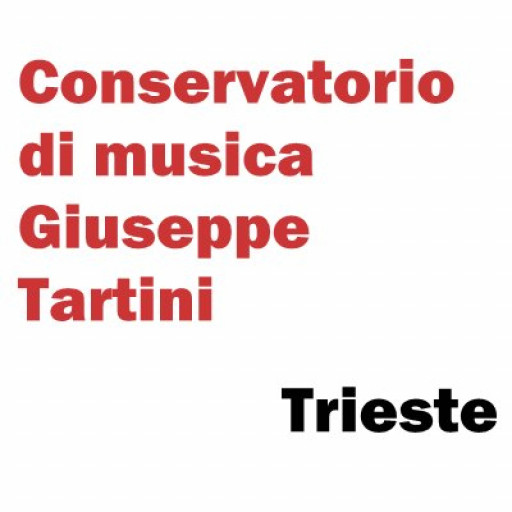Photos of university / #oxford_uni
The MSt can serve both as a self-contained course for students wishing to pursue more advanced studies in musicology for one year or as an excellent preparation for doctoral research. Students on the MSt courses in musicology, performance and composition follow a common structure, supported by appropriate individual supervision or tuition in their chosen specialism.
The Master of Studies in Music (Musicology) introduces a broad range of current methodologies and approaches in music scholarship. The main MSt teaching and coursework is done in the first two terms and the third is reserved for completion of assessed work.
Core seminars
In the Michaelmas term there are typically six topics:
- historical musicology
- current trends in music theory
- aesthetics
- the social and cultural study of music
- performance
- composition
You may participate in as many of these seminars as you wish. Your first assessment may be written in response to an aspect of any one of the courses attended.
Elective seminars
Each year a number of faculty members convene a series of ‘elective’ seminars based on their research interests, to help you prepare for your assessment essays. You are invited to attend as many of these seminars as you wish. Reading lists are sent out before the start of the courses and you are asked to prepare fully and contribute to the seminars. The first of the seminars may well incorporate a lecture given by the faculty member. Most of the electives take place in Hilary term.
Recent seminar series included the following titles:
- Musical Cross Currents between Opera and Film
- Late Medieval Music: Ontology, Ethics and Cognition
- Music and Consciousness
- Operatic Identities
- Schubert’s Fingerprints
- Sound Cultures, Sound Objects
- Street Music
Presentation seminars
Presentation seminars are held in Hilary term. The entire MSt student cohort is split into two groups, with musicologists, performers and composers being represented in each group. You will prepare a presentation on your own research in one session and will be asked to respond to another student’s presentation in another.
Assessment
You will submit an essay or exercise in response to one of the core seminars at the end of Michaelmas term. A second essay is submitted at the end of Hilary term. The final assessment also includes one further essay in musicology, and either a dissertation in musicology or ethnomusicology or an editorial exercise (edition) in Trinity term.
Applicants are normally expected to be predicted or have achieved a first-class or strong upper second-class undergraduate degree with honours (or equivalent international qualifications), as a minimum, in music or related fields.
For applicants with a degree from the USA, the minimum GPA sought is 3.6 out of 4.0.
However, entrance is very competitive and most successful applicants have a GPA of 3.7, a first-class degree or the equivalent.
If you hold non-UK qualifications and wish to check how your qualifications match these requirements, you can contact the National Recognition Information Centre for the United Kingdom (UK NARIC).
Relevant professional experience may be considered as a substitute for academic attainment.
The minimum Graduate Record Examination (GRE) score sought is 163 (Verbal). However, since entrance is very competitive most successful applicants will have a GRE score of 166 (Verbal) or more.
- Official transcript(s)
- CV/résumé
- Statement of purpose/personal statement: Up to 1,000 words
- Written work:Two essays of 2,000 words each
- References/letters of recommendation:Three overall, generally academic
ENGLISH LANGUAGE REQUIREMENTS
Higher level
|
est |
Standard level scores |
Higher level scores |
||
|
IELTS Academic |
7.0 | Minimum 6.5 per component | 7.5 | Minimum 7.0 per component |
|
TOEFL iBT |
100 |
Minimum component scores:
|
110 |
Minimum component scores:
|
| Cambridge Certificate of Proficiency in English (CPE) | 185 |
Minimum 176 per component |
191 |
Minimum 185 per component |
| Cambridge Certificate of Advanced English (CAE) | 185 |
Minimum 176 per component |
191 |
Minimum 185 |
- Global Education
- Hill Foundation Scholarships
- Ertegun Scholarship Programme
Musicology at the University of Oxford offers a comprehensive and rigorous study of music as an academic discipline. The programme is designed to provide students with a deep understanding of the historical, cultural, and theoretical aspects of music across different periods and regions. Students engage with a wide range of musical traditions, critical methods, and analytical techniques, enabling them to develop both practical skills and scholarly insights. Typically, the course allows students to specialise in areas such as Western art music, ethnomusicology, or contemporary music studies, depending on their interests and academic goals.
The programme is distinguished by its highly research-oriented approach, with students being encouraged to pursue independent projects and original research under the supervision of expert faculty members. The curriculum includes coursework in music history, music theory, ethnomusicology, and other interdisciplinary subjects, supplemented by workshops, seminars, and lectures that foster critical discussion and scholarly exchange. As part of the programme, students may also have opportunities to participate in concerts, fieldwork, or collaborative projects that enhance their practical understanding and engagement with music in diverse contexts.
The degree often leads to further academic pursuits such as doctoral research, or it may prepare graduates for careers in academia, music journalism, archiving, heritage management, or the music industry. Admission to the programme is competitive and typically requires a strong academic background in music or a related field, along with a demonstrated interest in scholarly research. The University of Oxford's resources, including its extensive library collections and specialist research centers, significantly support students’ academic development.
Overall, Oxford’s Musicology programme provides an intellectually challenging environment within one of the world’s most renowned universities, fostering rigorous scholarship, critical thinking, and a deep appreciation of music’s cultural significance across history and societies.







